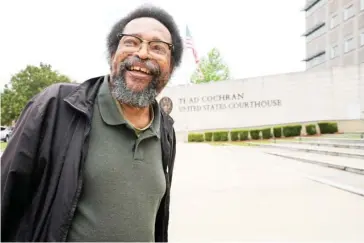Legal Battle Unfolds Over New Court in Mississippi’s Capital, Raising Equality Concerns

In a legal saga spanning months, the constitutional right to equal treatment under the law is under scrutiny as Mississippi faces a challenge over the creation of the Capitol Complex Improvement District (CCID) Court in the majority-black capital city of Jackson.
Scheduled for establishment on January 1, the CCID Court has become a focal point of contention, with a federal judge set to hear arguments on December 19. The court, designed to address misdemeanor cases, would deviate from the norm by being led by state-appointed judges and prosecutors, departing from the typical process where municipal judges are appointed by local elected officials.
This move has ignited a clash between proponents, who argue it is part of a broader crime-fighting initiative, and opponents, who assert it infringes upon the rights of the majority-black City of Jackson. The Justice Department, voicing concern over potential suppression of Black political power, contends that the law specifically targets Jackson, undermining its local control and self-governance.
Kristen Clarke, Assistant Attorney General for the Civil Rights Division, and Todd Gee, U.S. Attorney for south Mississippi, emphasized in a federal court filing on December 5 that the proposed law singles out Jackson, echoing past efforts to diminish Black political influence.
Contrarily, Mississippi Attorney General Lynn Fitch, representing the state, argues that those challenging the law have failed to demonstrate harm and that blocking the creation of the new court would result in irreparable damage. Fitch contends that the CCID Court is a response to public safety and criminal justice emergencies affecting not just Jackson residents but all Mississippians.
The dispute extends beyond legalities, delving into concerns of racial bias and local autonomy. The opponents, including the NAACP and Jackson residents, argue that the court’s structure, with a state-appointed judge and prosecutors, treats Jackson residents differently, potentially infringing on their constitutional rights.
As the legal battle unfolds, the outcome could significantly impact not only the residents and workers in the designated district but also set a precedent for the balance between state and local authority, particularly in majority-black communities like Jackson.












